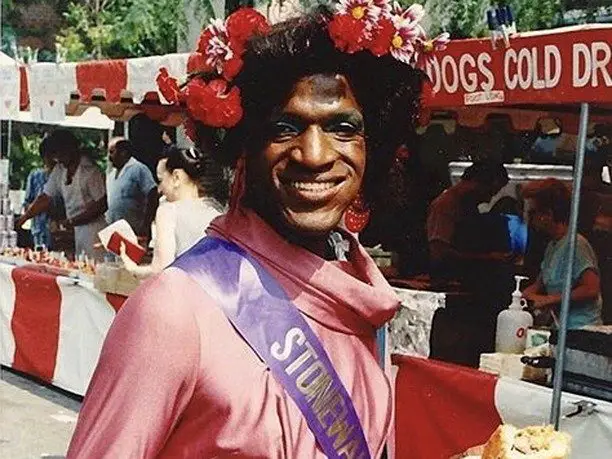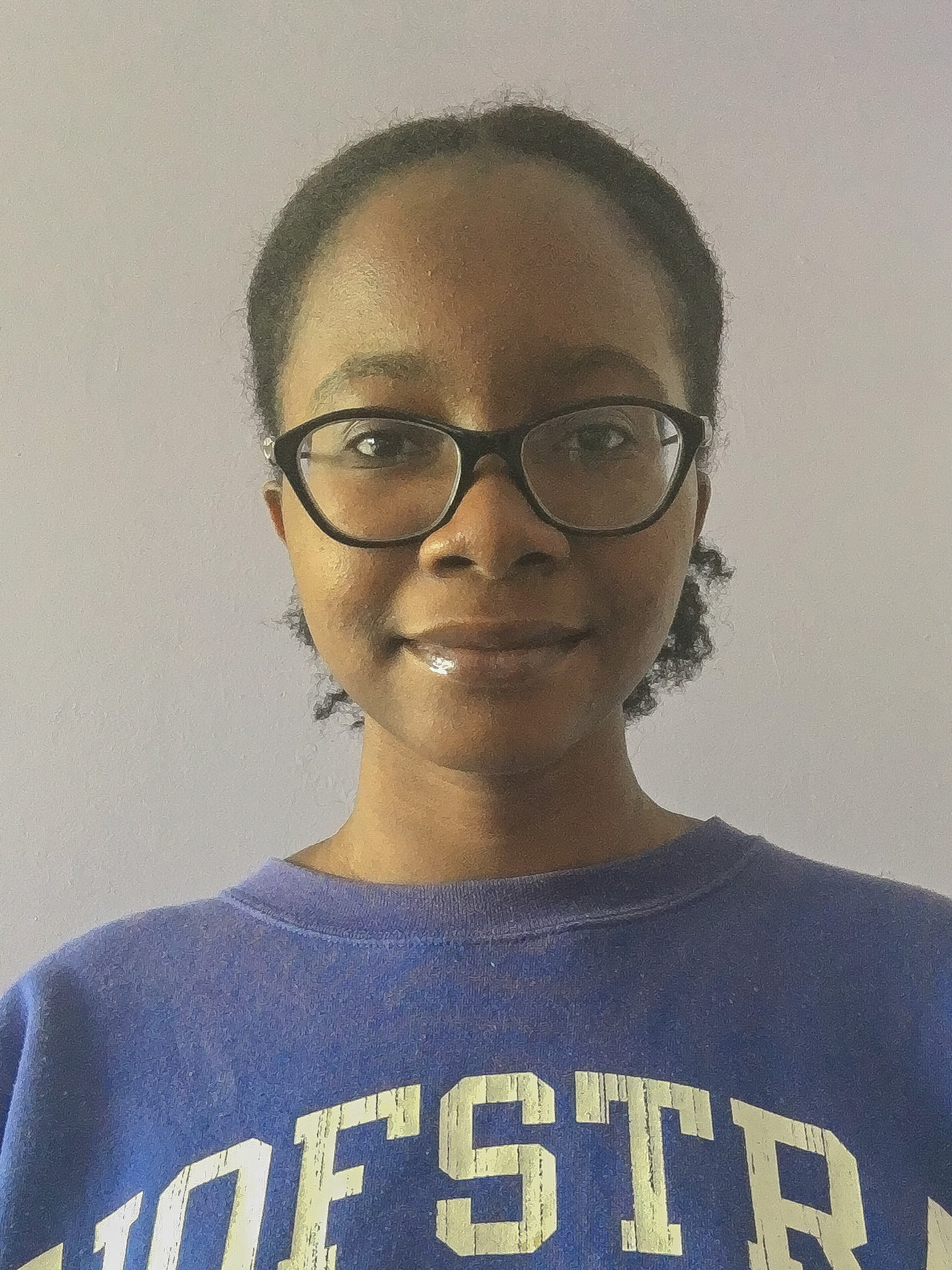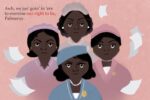Black women have been at the forefront of activism for centuries. Through all that they have faced — racism, sexism and injustice — their resilience remained unwavering. Here is a list of 10 Black women that you should know about.
1. Angela Davis (1944-)
“I am no longer accepting the things I cannot change. I am changing the things I cannot accept.”
Angela Davis is perhaps best known for her activism, teachings and writings on racial injustice. She first started to gain notoriety in the 1960s through her involvement with the Black Panthers and the Communist Party USA.
Davis was also known for her support of the Soledad brothers —John W. Cluchette, Fleeta Drumgo and George Lester Jackson. They allegedly killed a prison guard after another guard killed other African American inmates during a fight.
After an escape attempt gone wrong in 1970 during George Jackson’s trial, the court charged Davis with murder. Once a warrant was issued for her arrest, she went into hiding and the FBI placed her on its Ten Most Wanted Fugitive List. On Oct. 13, 1970, officers arrested Davis. She was in prison for over a year until her acquittal in June 1972.
Since her emancipation, Davis has written books, continued her activism and traveled the country. She has given numerous lectures discussing racism, women’s rights and reforming the criminal justice system.
2. Fannie Lou Hamer (1917-1977)
“When I liberate myself, I liberate others.”
Fannie Lou Hamer was born in 1917 into a family of Mississippi sharecroppers. She married Perrie Lou Hamer in 1944 and they worked on a plantation owned by B.D. Marlowe until 1962.
In 1961, Fannie became an organizer for the Student Non-Violent Coordinating Committee (SNCC). She led 17 volunteers to register to vote, yet they were denied due to unfair literacy tests. Hamer was fired by B.D. Marlowe for attempting to vote, and her family lost their property. She would not gain her right to vote until June 1963.
Hamer began her ascent to national prominence once she co-founded the Mississippi Freedom Democratic Party (MFDP). She went with her fellow members to the Democratic National Convention to gain recognition as the official delegation. In 1964, she passionately addressed the Credentials Committee concerning mandatory integrated state delegations. Four years later, Hamer became an official member of Mississippi’s first integrated delegation.
Hamer went on to help organize Freedom Summer, a 1964 voter registration drive for Black voters in Mississippi.
In 1969, she began the Freedom Farm Cooperative (FFC) to help Black people purchase their own property. Donors contributed to her campaign, allowing her to buy 640 acres and establish several businesses on the land. Over a hundred units of low-income housing were built by Hamer’s efforts alone; many are still standing today.
3. Marsha P. Johnson (1945-1992)
“How many years has it taken people to realize that we are all brothers and sisters and human beings in the human race?”
Marsha P. “Pay No Mind” Johnson was a Black transgender woman who advocated for LGBTQ rights. In 1963, she moved to Greenwich Village with very little. To make ends meet, she worked as a prostitute until she found her community in the nightlife of Christopher Street and became a drag queen. Soon enough, she became a fixture of her community and was a “drag mother” for at-risk LGBTQ youth. During the Queer Revolution in June 1969, Johnson was a prominent face and leader in the community through her participation in the Stonewall Uprising.
Johnson co-founded the Street Transvestite Action Revolutionaries (STAR), which focused on advocating and caring for transgender youth throughout the early 1970s. In 1972, she traveled the globe with the Hot Peaches, a drag theater company.
On July 6, 1992, the body of Marsha P. Johnson was found in the Hudson River. While authorities ruled it a suicide at the time, many community members claimed otherwise. The case was reopened 25 years later by Victoria Cruz as chronicled by the 2017 documentary “The Death and Life of Marsha P. Johnson.”
4. Audre Lorde (1934-1992)
“If I didn’t define myself for myself, I would be crunched into other people’s fantasies for me and eaten alive.”
A poet, writer, feminist and civil rights activist, Audre Lorde was born in New York City to West Indian immigrants. After obtaining her master’s degree from Columbia University, Lorde worked as a librarian through the 1960s.
She published her first volume of poetry in 1968, a moment that would change her life forever. Lorde quit her job and began teaching poetry workshops in the South. It was there that she witnessed the deep racial tensions that existed in the region, and published her second volume of poetry, “Cables to Rage.” Her poetry was deeply personal; it was often derived from her journals. As she told Charles H. Rowell for Callaloo, “My sexuality is part and parcel of who I am…Jesse Helms’s objection to my work is not obscenity. It is about revolution and change.”
In 1981, Lorde co-founded Kitchen Table: Women of Color Press, a company focused on highlighting the work of Black feminists. She also created the Sisterhood in Support of Sisters in South Africa to support Black women dealing with apartheid.
5. Sanité Bélair (1781-1802)
“Liberty, no to slavery!”
Sanité Bélair was a revolutionary and freedom fighter during the Haitian Revolution. She was born Afranchi (a free person of color) in presumably 1781. The restrictions placed on her motivated Bélair to join the fight for Haiti’s liberation from France.
At 15, she married Charles Belair and spent the following years fighting the French army. Her brilliant mind, bravery and undisputed determination allowed her to rise up in the ranks, eventually becoming lieutenant in Toussaint Louverture’s army.
After Louverture’s death, Bélair and Charles were captured by the French army and sentenced to death: Charles by firing squad and Sanité by decapitation. Upon witnessing her husband’s shooting, she demanded the same. It is believed that Sanité refused to wear a blindfold, her last words being Viv Libète anba esklavaj, or “Liberty, no to slavery!”
Sanité Bélair is formally recognized by the Haitian government today as a National Heroine of Haiti and is on their currency.
6. Claudia Jones (1915-1964)
“A people’s art is the genesis of their freedom.”
Claudia Jones grew up in Harlem as a West Indian immigrant during the 1920s. Hardship riddled her adolescence: She lost her mother at 12 and became a school dropout within the year. Although she could not attend school, Jones did not give up on her education. She joined the Young Communist League at 18.
At the time, critics deemed Jones’ intersectional work as too radical. Her denunciations of the “super-exploitation” of Black women sent her to jail.
After her second incarceration, Jones was deported from America to England. Still, her determination for equality remained unwavering.
While in England, she founded the West Indian Gazette, London’s first Black newspaper. In 1959, she helped launch the country’s first Carnival event, in hopes of celebrating its West Indian community.
7. Opal Tometi (1984-)
“We deserve a multiracial democracy that works for all of us.”
Opal Tometi is one of the co-founders of the Black Lives Matter movement. She grew up with Nigerian immigrant parents and is a writer and social justice advocate.
Fueled by her own experiences, Tometi became an advocate for immigrant rights. She used her skills to work for Black Alliance for Just Immigration (BAJI), where she is now executive director. In 2016, she organized the first Congressional briefing for Black immigrants in Washington D.C.
After the fatal shooting of Trayvon Martin, Tometi joined Alicia Garza and Patrisses Cullors to form the Black Lives Matter movement in 2013. The aim of the movement is to end mass incarceration and police brutality against African Americans.
Tometi has received numerous accolades for her efforts, some being the 2017 Sydney Peace Prize alongside her co-founders and a feature in the Smithsonian’s National Museum for African-American History and Culture.
8. Elaine Brown (1943-)
“It was not about forgetting. It was about living and about dying for freedom.”
Elaine Brown grew up in Philadelphia in the 1940s. During her adolescence, she moved to Los Angeles where she worked as a piano teacher at a Watts housing project. Her experiences working there awakened her racial activism.
She started writing for the Black Congress Newspaper, Harmbee, and joined the Black Panther Party. Once she joined, she contributed to its outreach programs and became the editor of the Black Panther News in South Carolina. In 1974, Brown became chairwoman.
While in her new position, Brown had to deal with sexism amongst the members. Still, she persisted and led the Black Panthers for three years. During her tenure, she helped create the Black Panther Party’s Liberation School and contributed to the campaign of Lionel Wilson.
She went on to establish several organizations, such as Field of Flowers (1996), to build an education center for children in poverty. Elaine Brown became an author and continues to lecture at conferences and universities.
9. Ida B. Wells (1862-1931)
“The way to right wrongs is to turn the light of truth upon them.”
Ida B.Wells was an investigative journalist and activist. At 25, Wells co-owned and edited a local Black newspaper, the Free Speech and Headlight. After the lynching of her friend, she investigated what went behind the lynchings of Black men. Wells continued her reporting with an 1892 expose on lynching locals who continually harassed her.
Eventually, their threats became so overwhelming that she relocated to Chicago. In 1895, Wells published the Red Record, which was the first record of the history of American lynchings.
Alongside her journalism, Wells co-founded the National Association for the Advancement of Colored People (NAACP) and was involved in the women’s suffrage movement.
10. Sojourner Truth (1797-1883)
“I am not going to die, I’m going home like a shooting star.”
Born Isabella Bomfree, she was an African American abolitionist and women’s rights activist. Born into slavery, she escaped to freedom with her daughter in 1826. She then moved to New York City and converted to Methodism. There, she realized that she had a calling to speak the truth and renamed herself Sojourner Truth.
Working as a preacher, she met fellow abolitionists Frederick Douglass and William Lloyd Garrison. Sojourner Truth never learned to read or write, yet she was still able to speak against slavery. Her autobiography, ”The Narrative of Sojourner Truth,” landed her national recognition. In her famous 1851 speech, “Ain’t I a Woman?,” she defied narratives of racial inferiority and challenged sexist ideals. Truth was the ultimate intersectional voice for Black women.
She delivered more speeches nationwide, campaigning for gender and racial equality. Truth continued bringing slaves to freedom and supported the cause of the Union army. After an invitation to the White House, Truth joined the Freedmen’s Bureau and helped newly freed slaves reconstruct their lives.
These Black women refused to let anything get in the way of their desire for equality. They are a reminder for our generation today that no matter how big it may seem, anyone can pick up the cause and fight for the voiceless and unseen.

















